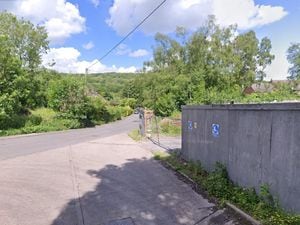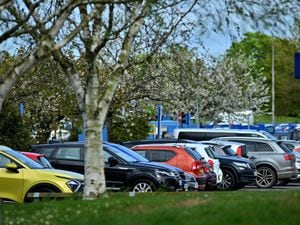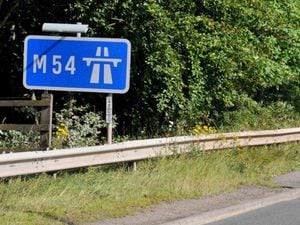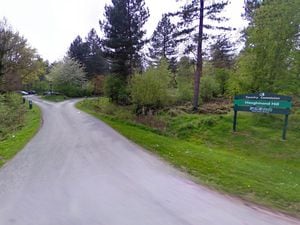9/11: Our memories of that fateful day
It is fitting that the war in Afghanistan has come to an end just before the 20th anniversary of 9/11. That deeply disturbing event precipitated the War on Terror, in which Blair and Bush were joined arm in arm.
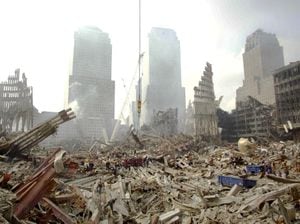
Four California-bound commercial airliners, were hijacked mid-flight by 19 al-Qaeda terrorists. The first plane to hit its target was American Airlines Flight 11. It was flown into the North Tower of the World Trade Center complex in Lower Manhattan at 8.46am. Seventeen minutes later at 9.03am, the World Trade Center’s South Tower was hit by United Airlines Flight 175.
Both 110-story towers collapsed within an hour and forty-two minutes, leading to the collapse of the other World Trade Center structures including 7 World Trade Center, and significantly damaging surrounding buildings.
Suspicion quickly fell onto al-Qaeda. The United States formally responded by launching the War on Terror and invading Afghanistan to depose the Taliban, which had not complied with U.S. demands to expel al-Qaeda from Afghanistan and extradite al-Qaeda leader Osama bin Laden.
The attacks resulted in 2,977 fatalities, over 25,000 injuries, and substantial long-term health consequences, in addition to at least $10 billion in infrastructure and property damage. It remains the deadliest terrorist attack in human history and the single deadliest incident for firefighters and law enforcement officers in the history of the United States, with 340 and 72 killed, respectively.
Former reporter Tracey Rous – then Tracey O’Sullivan – was present in New York when the Towers fell. She reported exclusively for the Express & Star and Shropshire Star and today reflects on the incident, on its 20th anniversary.
Our team of writers also look back at their memories of the worst terrorist atrocity in human history.
It wasn’t until hours after the World Trade Centre attack, as that first nightfall descended and acrid smoke hung heavy in the air with unimaginable tragedy, that I felt the enormity of it all spark a paralysing panic.
The kind of scenario you imagine is reserved for the doomsday blockbuster movies where there’s no way home and fear is all you will ever know again.
Sirens wailed across New York, bloodied survivors still wandered the streets, the shadows of mangled wreckage loomed large in the floodlights brought in to help the search for those still missing, planes were grounded and rumour and speculation of further attacks still ran rife. It felt like World War Three had started.
Maybe it was the first time that day you wanted to hope the worst was over, but instead it allowed the worst fears in and the entire city seemed to struggle to catch its breath.
I had only arrived in New York the night before 9/11 for a family wedding and was sitting with my cousin, the bride-to-be when the first plane hit the South Tower.
The Shropshire Star had called to see if I could file some copy on that incident and I was on the phone when the second plane hit the North Tower – it immediately dawned on everyone this was no tragic accident.
While that was a palpable shock, which hit again and again as the towers fell, that trauma prompted action. For my family, it was to track everyone down and make sure they were safe. I had two cousins who had left that morning for work in offices in Lower Manhattan.
For me, it helped to have a job to do to report on what was happening and also see what we could do to help.
With my cousin, we went as far as we could in her car as the city transport systems were shut down forcing people to flee the city on foot – bringing with us blankets, water, anything we could think of that might be needed.
As we met so many fleeing it was impossible to have really prepared to know what to do as true terror engulfed people. They were broken, distressed and confused and could not comprehend what had happened. It’s difficult now to remember what we said, what exactly we did but on that day and in the days that followed those involved wanted to tell their stories.
For some, it was a coping mechanism and for others, it was a way in which to search for those still unaccounted for in the haunting debris left behind when the World Trade Center Towers collapsed.
Images from 9/11 are seared into everyone’s memory, but among the most poignant are the walls of posters of missing persons which appeared in the days after the attack.
It was a new city for me and I was seeing it for the first time in the most distressing of circumstances, but there was still comfort to be had in the human spirit and as New York started those first tentative steps to recovery during my remaining time there, I believe I also saw some of its best qualities in people who went out of their way to help others.
It’s hard to conjure every feeling I had during those two weeks but I can vividly remember that panic – the all-encompassing fear as you watch the world you have always known being ripped apart. It was a day that changed the world and scarred too many lives to count, even now 20 years on. Was it ridiculous to have felt that brief sense of armageddon once I was home and back in the daily routine? I don’t know, but to remember it is to know that life is fragile for all of us. Hopefully, always showing compassion for those facing the immediate and tragic consequences of that reality is something we can all have faith in.
By Tracey Rous
Vince Bufton was the man who broke the news. Has there ever been a better-named man? ‘Bufton’, a surname better than Emma Bunton, the ‘f’ rounding the sound. The bearded journalist walked into our office to declare that the Twin Towers had fallen.
The man sitting next to me, Craig Macfarlane, was shocked. “What. Wembley?” he said, imagining demolishing crews had swung a wrecking ball at the then-still-standing home of football.
“No,” said the bearded Bufton. “The Twin Towers.”
Images were starting to emerge of a plane flying into the World Trade Tower and the shock and horror was palpable. We were unsure at that point how many had died. It was clear, however, that America was under attack. Another plane had been flown towards the Pentagon. The leaders of the free world were under siege. This wasn’t a case of a rogue pilot or a human error, it was clear something far more traumatic was afoot.
The felling of the Twin Towers was a rare moment where people remember where they were. Like the killing of John Lennon, the death of Elvis, the passing of Princess Diana or the day when Britain went into lockdown, the news was so shocking that it burned a memory deep into our collective consciousness.
Those moments were beyond stupefying, though as the story began to unfold the shock grew. Men had knowingly and deliberately ended their own lives and the lives of thousands of others in a deliberate act of terror. The attack on the World Trade Towers was an attack on us all. Though we were sitting many thousands of miles away, in a tiny office in Ludlow, our own liberty was the target.
The coming days revealed grisly truths. The number of deaths started to climb, the tales of human tragedy were written and the start of a 20-year war had begun. The Western occupation of Afghanistan, the deaths of thousands more troops and civilian casualties had been written into our future history.
Subsequent documentaries humanised the tragedy. It told the stories of those who perished, recalled the valour of fire crews who had rushed to the scene and reported on the baby boom that followed in New York soon after.
Twenty years on, the downing of the Twin Towers is no less shocking, no less terrifying, no less disturbing. While New York and the Western World continued to go about its business, a deep scar remains. It serves as a reminder that life is fragile and that we must not take for granted the freedoms we each day enjoy.
By Andy Richardson
I was 13 years old. With the exception of the death of Princess Diana, I remember it being the first truly globe-shaking event to occur in my lifetime.
When Diana died I was only nine, perhaps a little ignorant of the gravity of the moment. This was something different entirely.
Arriving home from school on the afternoon of September 11, 2001, I turned on the TV hoping to enjoy an episode of the Pokémon cartoon, and instead was met with a bigger and more cataclysmic news story than I had ever seen.
Two hijacked aircraft had crashed into the towers of the World Trade Centre. A third had crashed into The Pentagon. There was little doubt that a terrorist attack on the United States had taken place.
Even as a boy of 13 I knew the reverberations this would have across the world, what it would mean for our own country, and what it could mean in terms of global conflict. I couldn’t really believe what I was seeing as I continued watching the unfolding news coverage. The Twin Towers were among the most iconic buildings in the world. I’d seen them in countless films, shining as part of the most famous skyline on the planet. To see footage of them collapsing was terrifying. To hear the panic and fear in the newscasters’ voices was perhaps even more so.
They say that everyone alive at the time remembers where they were and what they were doing when JFK was shot. I suspect with 9-11 it is the same.
I’ll certainly never forget that afternoon – it was the first time I witnessed true fear and panic on an international scale. Even as a kid, you could tell the world would never be the same again. It never has been.
By Dan Morris
Colleagues stood quietly around the television in the corner of the communal area of the office as I returned from the kitchen with a cup of tea.
Such silence was strange and eerie because I worked in a vibrant, buzzing newsroom with constant chatter.
As I joined my workmates to find out what was going on, all of us watched in sheer disbelief at what was happening. Only the occasional shaking of a head or statement of shock distracted eyes momentarily from the screen.
It felt like we were watching a movie as we all tried to compute what was happening.
But sadly this was no film, it was real and there was no positive outcome, just one of sheer devastation.
Those images of the New York skyline engulfed in smoke after the planes crashed into the Twin Towers remain vivid in my mind to this day when thinking about the events.
As a teenager, disasters such as Lockerbie had left a haunting impression in my mind.
Now an adult, like many others, 9/11 left me horrified and terrified that such a deliberate act of terror could have happened.
As the devastating day continued to unfold, some colleagues remained fixated on the coverage, others walked away, reflecting on the scale of the attack and thinking of those – nearly 3,000 people – who had lost their lives.
By Matthew Panter
My friend and I were travelling back from Telford shopping centre when the first passenger plane struck the World Trade Centre.
We were listening to the car radio when a DJ broke the news and with very little known at that time, it sounded like tragic accident.
But after dropping my friend off at her house, I returned home to find my mum glued to the television news, having abandoned her ironing.
A second plane had crashed into the South Tower. We knew then, as did the rest of the world, that it could only have been a deliberate act. I remember thinking: was this the start of a war?
We watched in horror as footage showed people jumping to their death out of windows on the floors above where the plane had struck. The fire caused by the impact had left people trapped with no way out. I can’t imagine what was going through their head when they made the decision to jump.
Then the South Tower collapsed and we watched the screen in disbelief. It was heartbreaking knowing that there couldn’t have been time for everyone to make it out safely. It wasn’t just the workers but the firefighters and other emergency sevice personal that we had earlier seen rushing into the building to help.
The loss of life was inconceivable.
It seemed inevitable that the North Tower would also fall but I remember praying that it would hold on until everybody had got out. We later watched in silence as it also crumbled. It didn’t seem real and I remember that feeling continued for a long time afterwards.
I was in America for the first anniversary of 9/11 having started my semester abroad at California State University, Fresno. A small ceremony was held in the campus gardens where yellow ribbons were tied to trees in memory of former students who had lost their lives. I believe this tradition as continued every year since so that those who died in this tragedy are never forgotten.
By Heather Large

